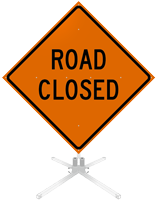Writer's Blocks
With the last three blogs I’ve been attempting to explain, simply, the primary devices that poetry uses: Symbol, Metaphor, and Simile. As examples I used poems I know by heart to show how these three devices made Meaning. But, I used entire poems—and ran into Roadblock # 1: entire poems of some length often use these devices complexly, sometimes quite complexly, mixing symbol, metaphor, and simile.
Road block #2: the Meaning of a poem depends in some part on what personal experiences we bring to it. Meaning may not lend itself to an explanation any more than a piece of art or music; you get the feel of it; that’s all, and it’s enough. This is especially so with poems that major in description (often symbolic), the meaning of which is not easily extracted.

Un block: as I found out with the Facebook Posts, “likes” have varied, sometimes extremely: some poems that I thought were my best—surprise—were not “liked.” Some poems that I thought were not so special—got lots of “likes.“ I’ll try not to suggest which poems I think are best, or not so best. I’ll continue to listen to your likes and silence, and learn. This, I have to confess, has been, and will be, a pleasure.
So, I’ve decided to change my method. Instead of explaining what the poems mean, I’ll point out the poetic devices of a poem and their connection to a possible meaning; but I’ll concentrate on questions, and on poetic devices that give poems their unique character.
I’ll start with a review of Symbol, go on to Simile, then Metaphor. And then explore a raft of poetic devices that give poems their unique character.
To explain these devices that make poems, poems I’ll use short examples or short poems from the poems posted on Facebook; and in my upcoming book New Moon by Half which will be available on Amazon in the near future...
Road block #2: the Meaning of a poem depends in some part on what personal experiences we bring to it. Meaning may not lend itself to an explanation any more than a piece of art or music; you get the feel of it; that’s all, and it’s enough. This is especially so with poems that major in description (often symbolic), the meaning of which is not easily extracted.

Un block: as I found out with the Facebook Posts, “likes” have varied, sometimes extremely: some poems that I thought were my best—surprise—were not “liked.” Some poems that I thought were not so special—got lots of “likes.“ I’ll try not to suggest which poems I think are best, or not so best. I’ll continue to listen to your likes and silence, and learn. This, I have to confess, has been, and will be, a pleasure.
So, I’ve decided to change my method. Instead of explaining what the poems mean, I’ll point out the poetic devices of a poem and their connection to a possible meaning; but I’ll concentrate on questions, and on poetic devices that give poems their unique character.
I’ll start with a review of Symbol, go on to Simile, then Metaphor. And then explore a raft of poetic devices that give poems their unique character.
To explain these devices that make poems, poems I’ll use short examples or short poems from the poems posted on Facebook; and in my upcoming book New Moon by Half which will be available on Amazon in the near future...
Published on June 18, 2018 03:26
No comments have been added yet.
Poetry: What’s it worth?
Poetry: What’s it worth? Little, it seems, these days—when did you last open a book of poetry?
In this blog, I'll be delving into why poetry works and what makes it worth reading. We'll explore what h Poetry: What’s it worth? Little, it seems, these days—when did you last open a book of poetry?
In this blog, I'll be delving into why poetry works and what makes it worth reading. We'll explore what has made poetry, century upon century, one of the most cherished forms of the written language. ...more
In this blog, I'll be delving into why poetry works and what makes it worth reading. We'll explore what h Poetry: What’s it worth? Little, it seems, these days—when did you last open a book of poetry?
In this blog, I'll be delving into why poetry works and what makes it worth reading. We'll explore what has made poetry, century upon century, one of the most cherished forms of the written language. ...more
- Scott Oury's profile
- 10 followers



